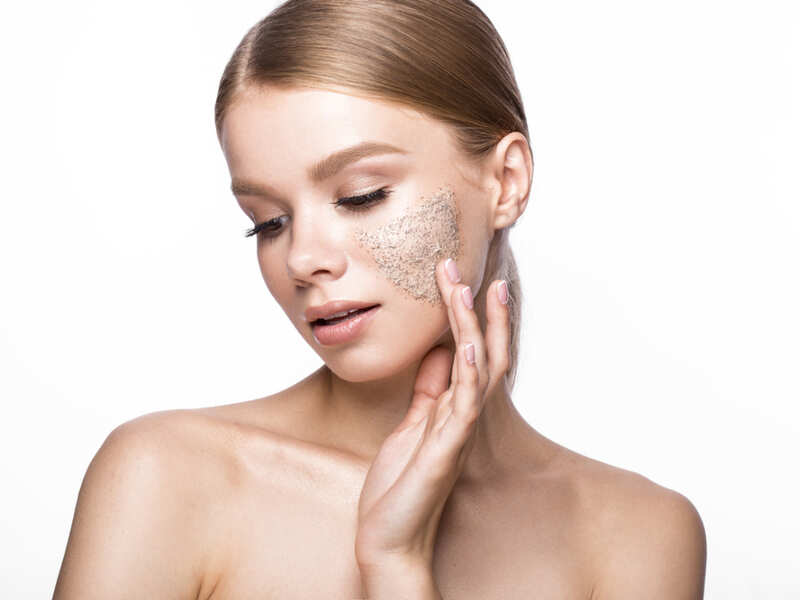After you shed dead skin cells, do you notice a renewed and revitalized look to your skin? Scrubbing the skin is a vital part of your skincare routine, and if done correctly, it can really make a difference. Though it can help your skin, too much of this ‘good thing’ might hurt your skin instead.

Over-exfoliation with physical or chemical exfoliants can lead to skin damage that may take a while to recover. We reached out to Dr. Kaustav Guha, R&D Head of SkinKraft Laboratories, to learn more about the benefits of the over-exfoliation process.
What happens to the skin when you over-exfoliate?
The exfoliation of your skin cells enhances their rate of turnover. So exfoliation will provide your skin cells that will be brand fresh. This provides your skin a youthful appearance, increases its texture, and helps level out your complexion. However, it’s crucial not to exfoliate too much or too regularly, since you’ll harm new skin cells before they’ve had a chance to settle in. These symptoms may include:
Extreme redness and skin irritation
Redness in the skin may be an indication that you have exfoliated too aggressively. These symptoms are sometimes present as well. Excessive exfoliation or scrubbing can make your skin feel rough and inflamed.
Swelling and water retention
You may have compromised the lipid layer of your skin if you see edema or puffiness in the exfoliated region. Moisture is held inside your skin thanks to the lipid layer, which prevents your skin from becoming damaged by the environment. The lipid layer of your skin is damaged, making you more sensitive and susceptible.
Skin that is extremely sensitive
Dry, scaly skin can occur from over-exfoliation. Even if you are not very sensitive to cosmetics, you may still suffer skin responses from some items. If you have over-exfoliated, you should avoid using harsh cleansers and vitamin A treatments (such as retinol and retinoids) for the rest of the week unless you are utilizing additional exfoliating physical or chemical products.
Either excessively dry or excessively greasy
Your skin produces natural oils that not only give you a glowing appearance but also act as a protective layer for your skin. Dry and flaky skin is caused by excessive exfoliation, which drains your skin from its natural oils.
While you may believe exfoliating more will solve your oily skin issues, you’re mistaken! To combat the effects of over-exfoliation, your skin begins to produce extra oil.
More breakouts have occurred
You heard correctly: Too much exfoliating can exacerbate your acne in these ways:
The skin’s defensive barrier is impaired, making it easy for acne-causing bacteria to wreak havoc on your skin.
Extensive scrubbing or peeling can make acne worse by increasing irritation.
It’s possible that clogged pores from too much exfoliating may cause you to develop more pimples and blackheads.
Waxy, tight skin
If your skin is excessively waxy, tight, and dehydrated, you have likely over-exfoliated. Skin that is moist and moisturized is tender, lustrous, and silky to the touch. Although a damaged top layer of your skin makes it more difficult to retain water, the skin’s appearance will be uneven due to a large amount of water lost.
How can skin that’s been over-exfoliated be helped?
Apply an ice pack to help cool and relieve the swelling and discomfort.
You may use aloe vera gel that has been chilled in the refrigerator to assist relieve your skin irritation.
Apply a fragrance-free moisturizer on your skin to moisturize it. Lotions containing ceramides can be used to assist in the healing of your skin’s protective barrier.
Applying a vitamin C serum to your skin might speed up the healing process.
If the redness and discomfort persist, a hydrocortisone cream or lotion may also help.
If you feel pain, swelling, or inflammation, take your recommended anti-inflammatory medicine.

